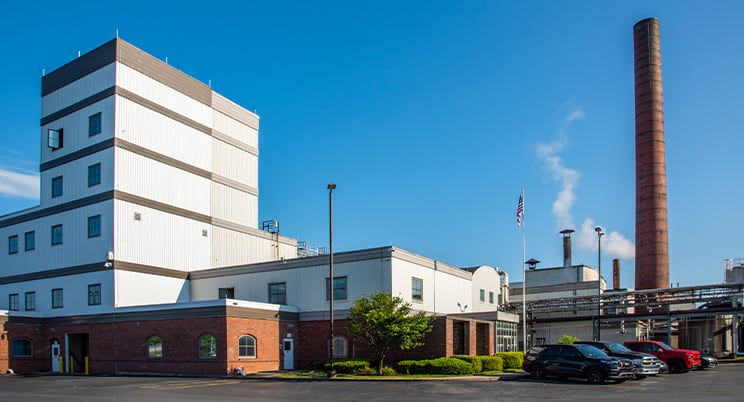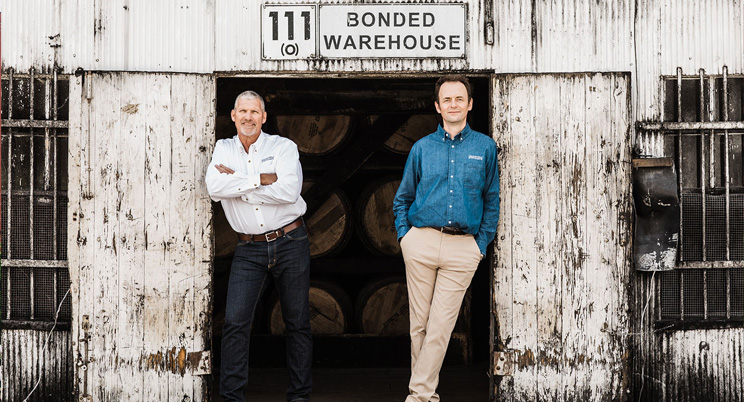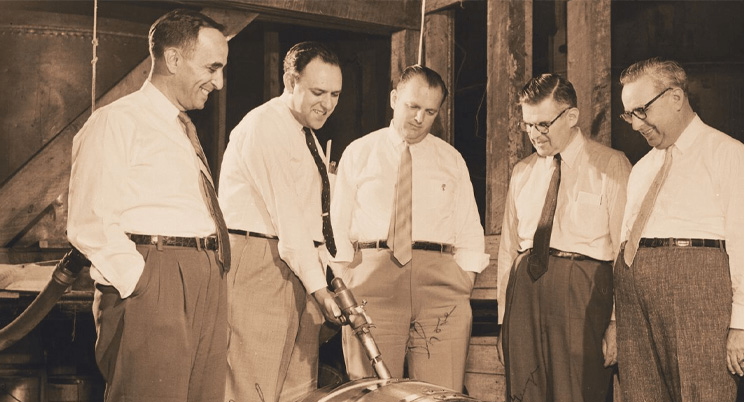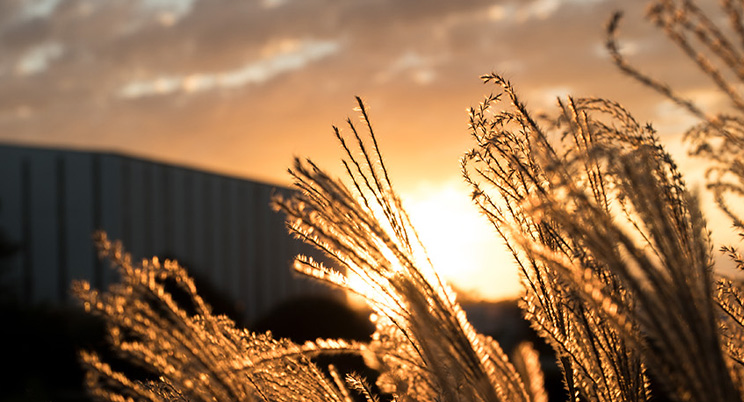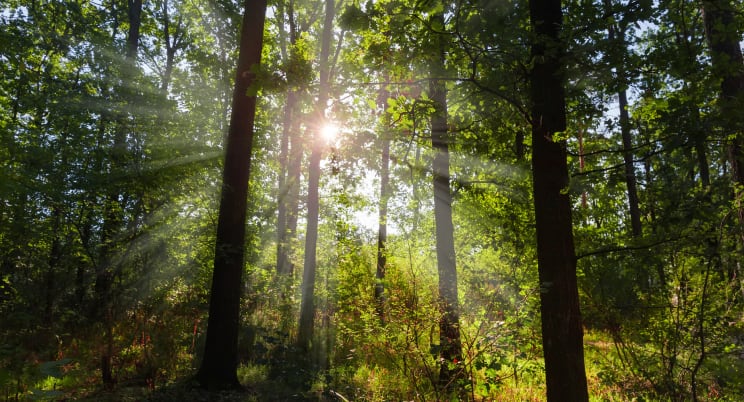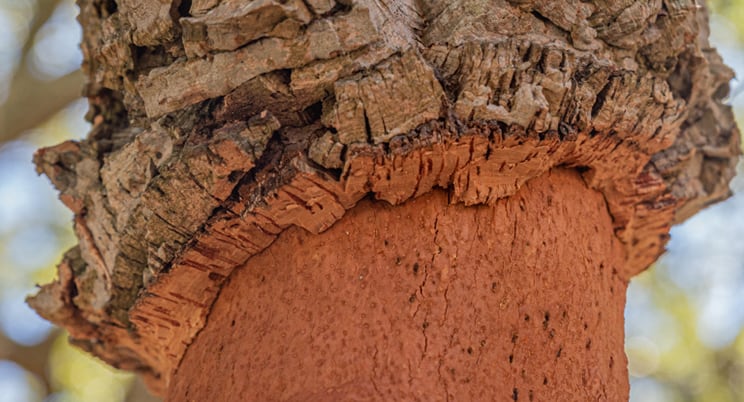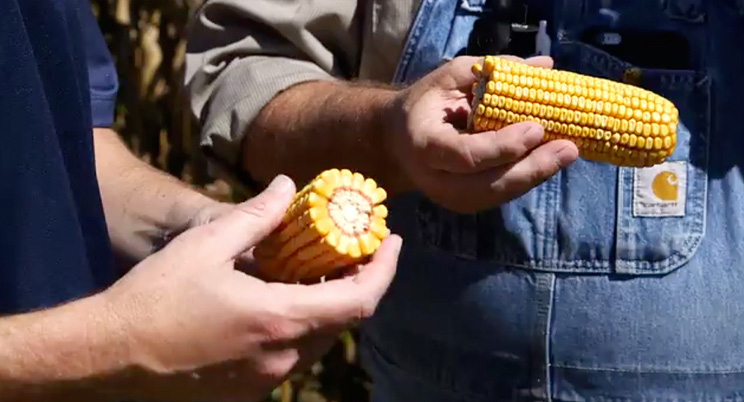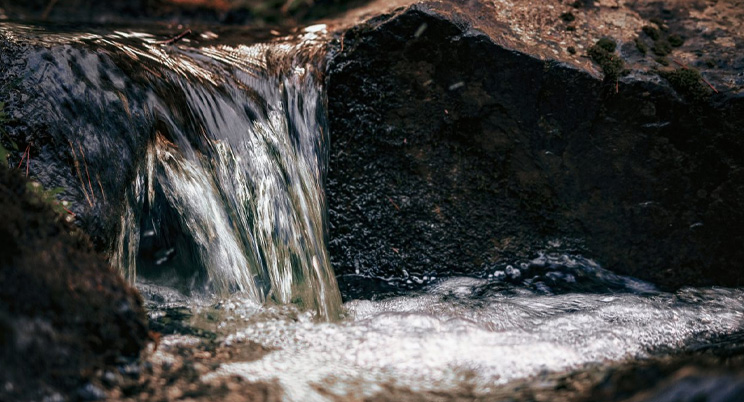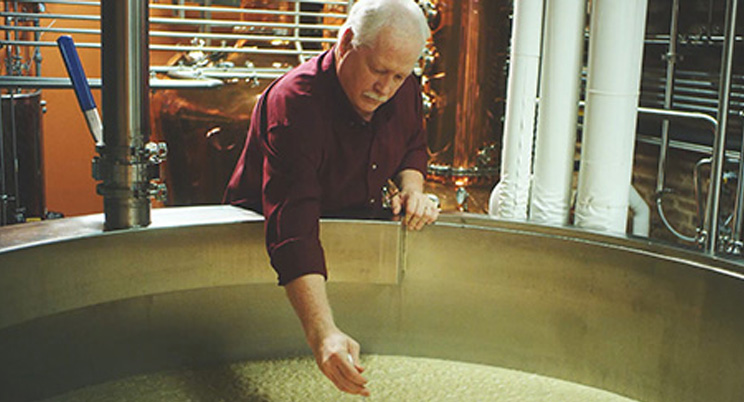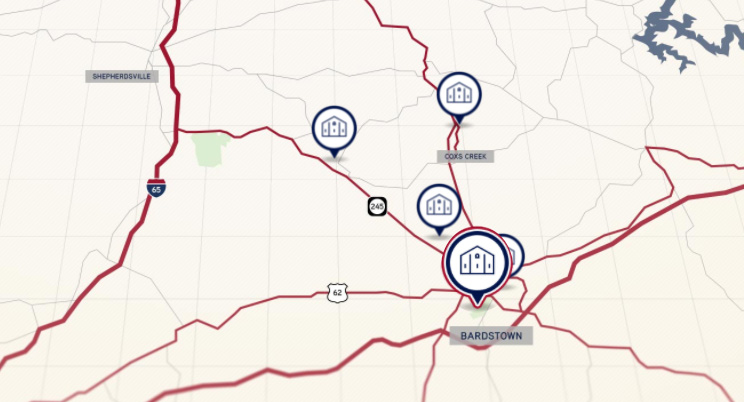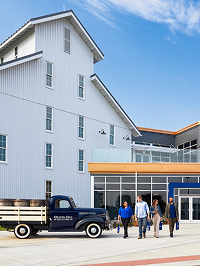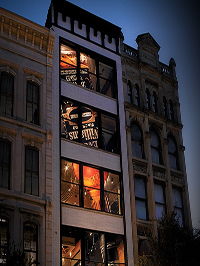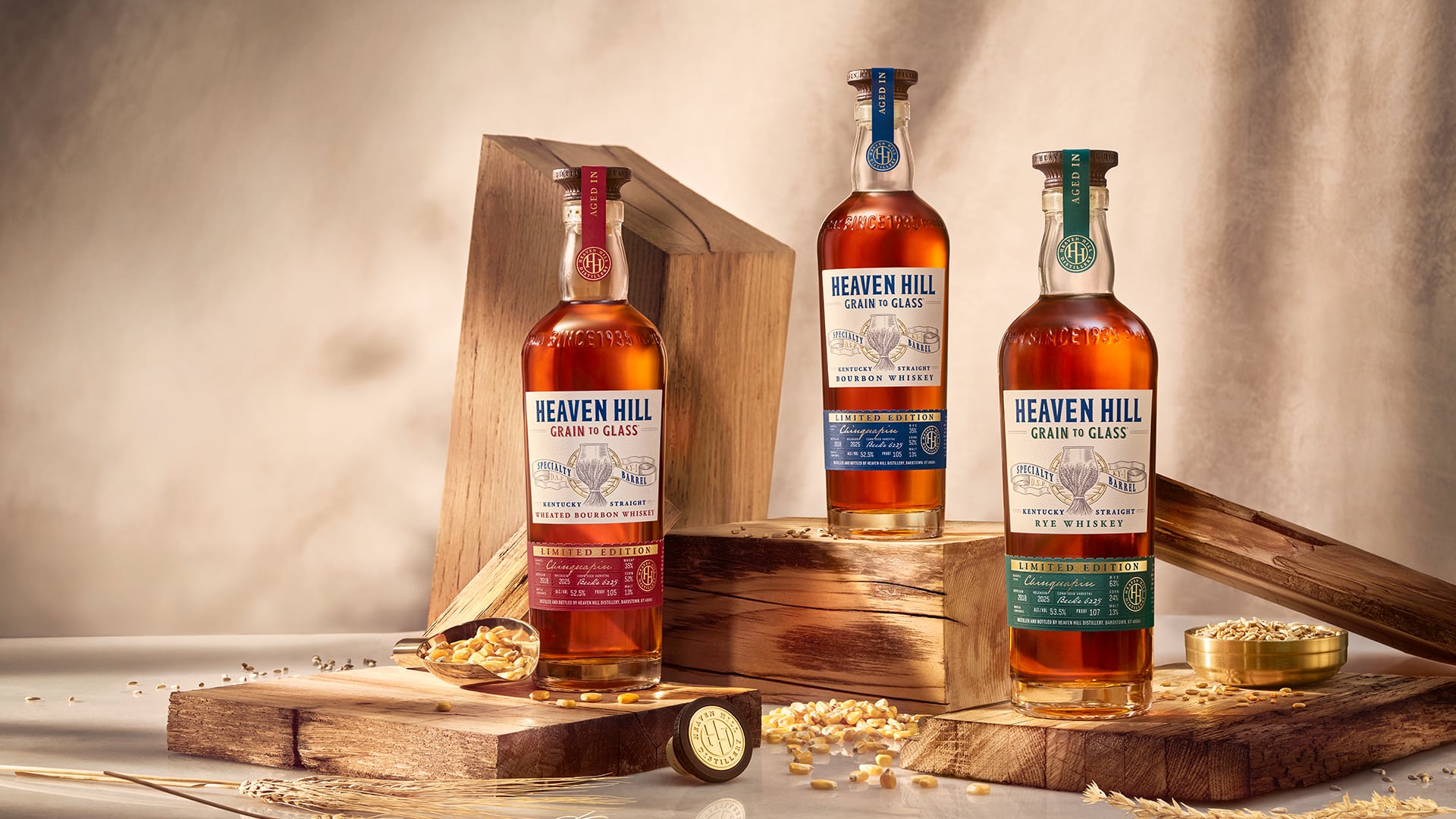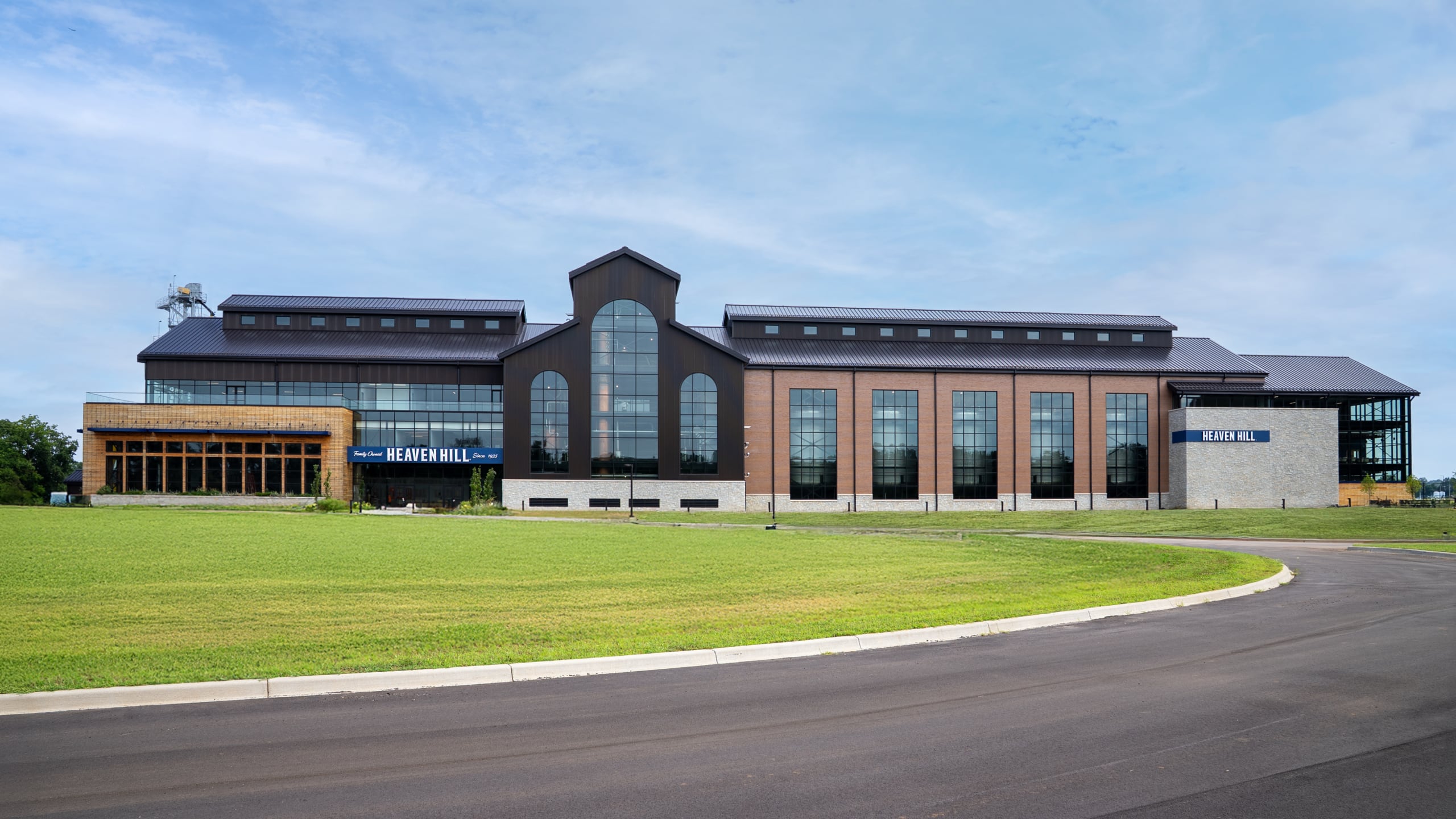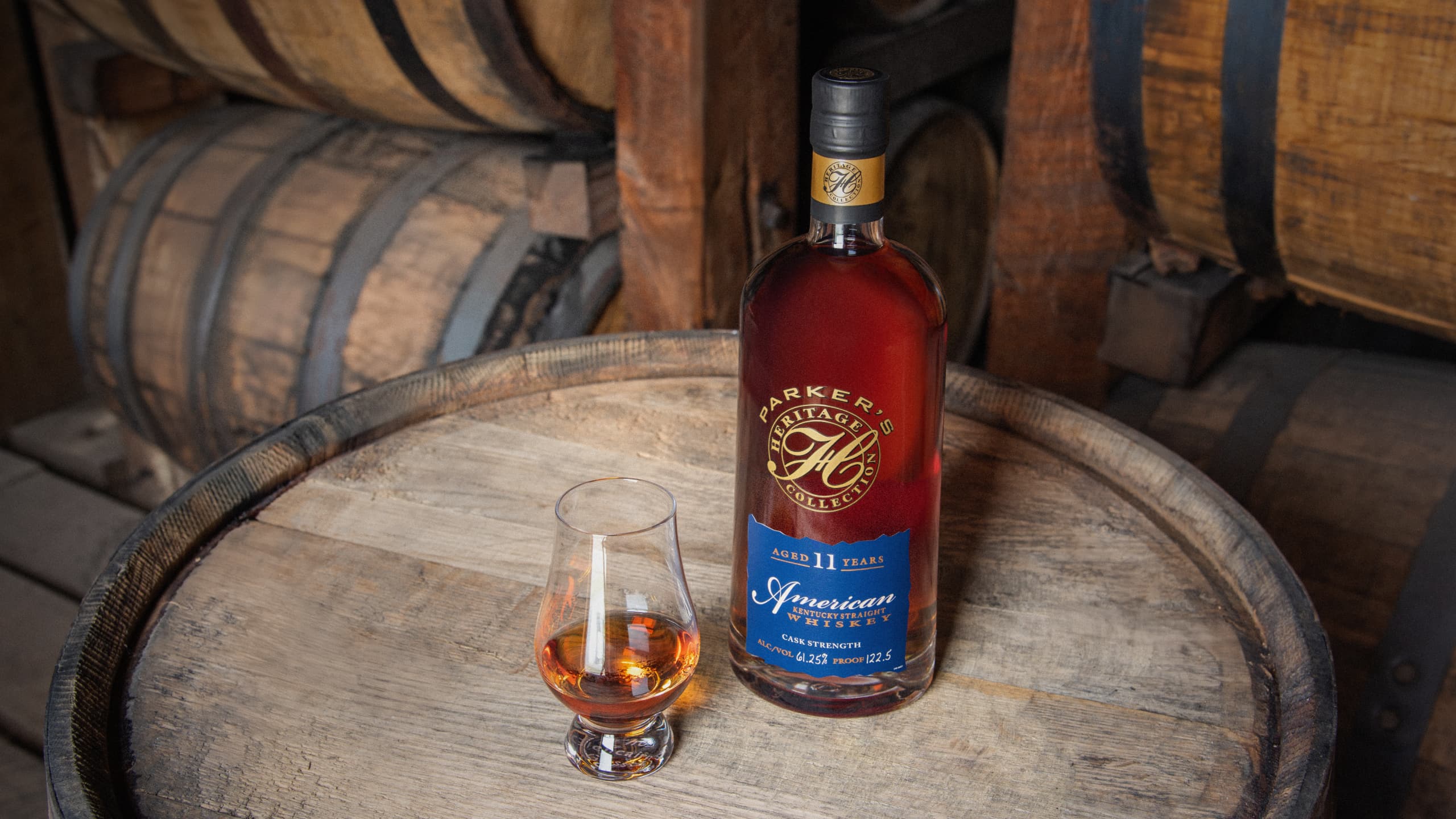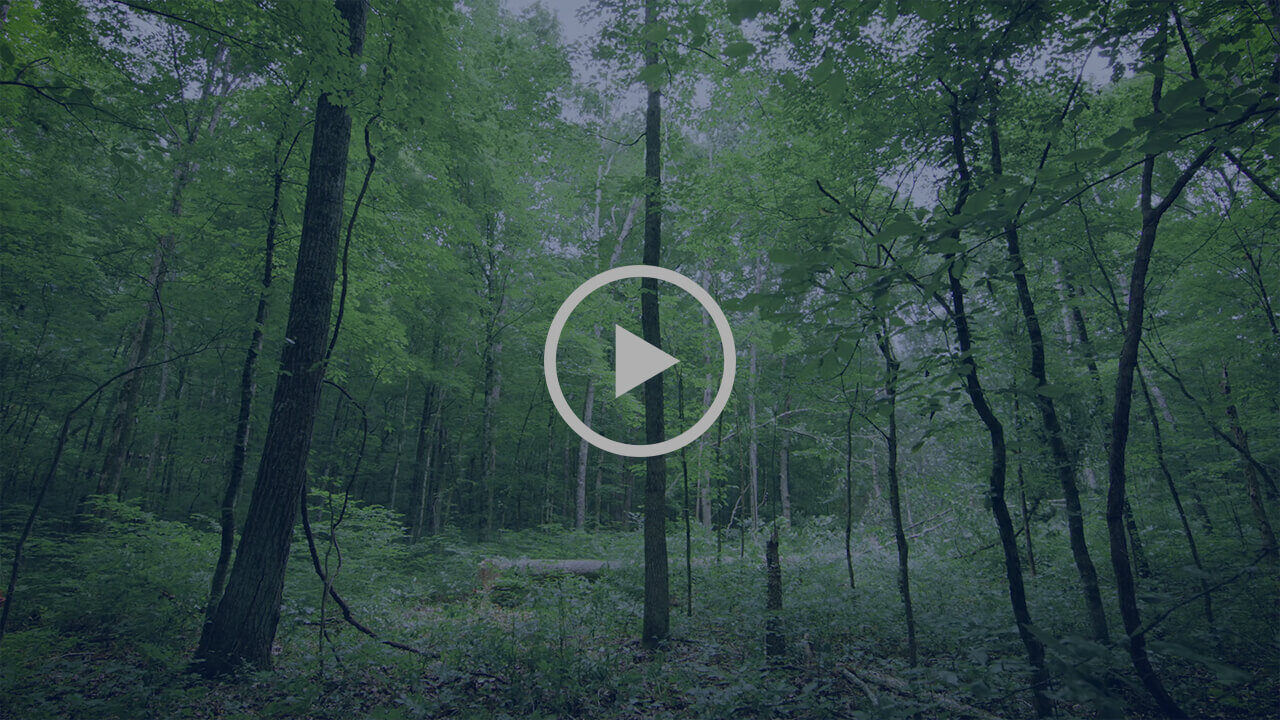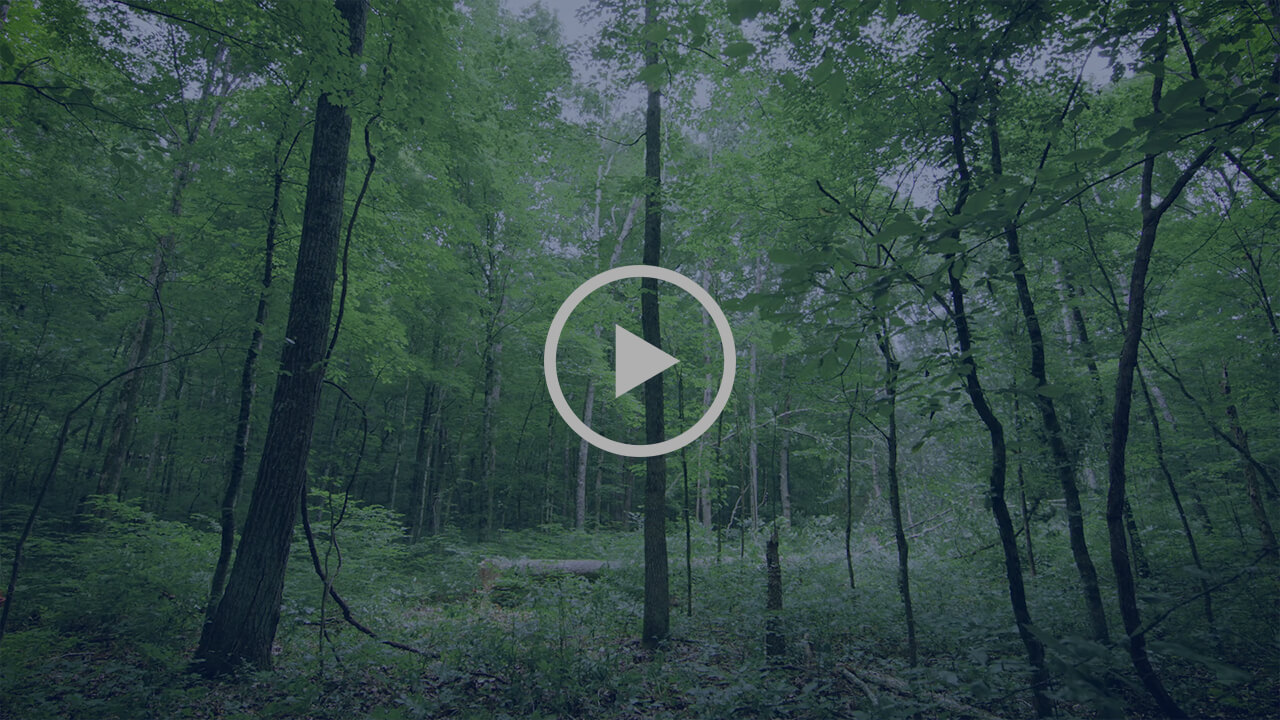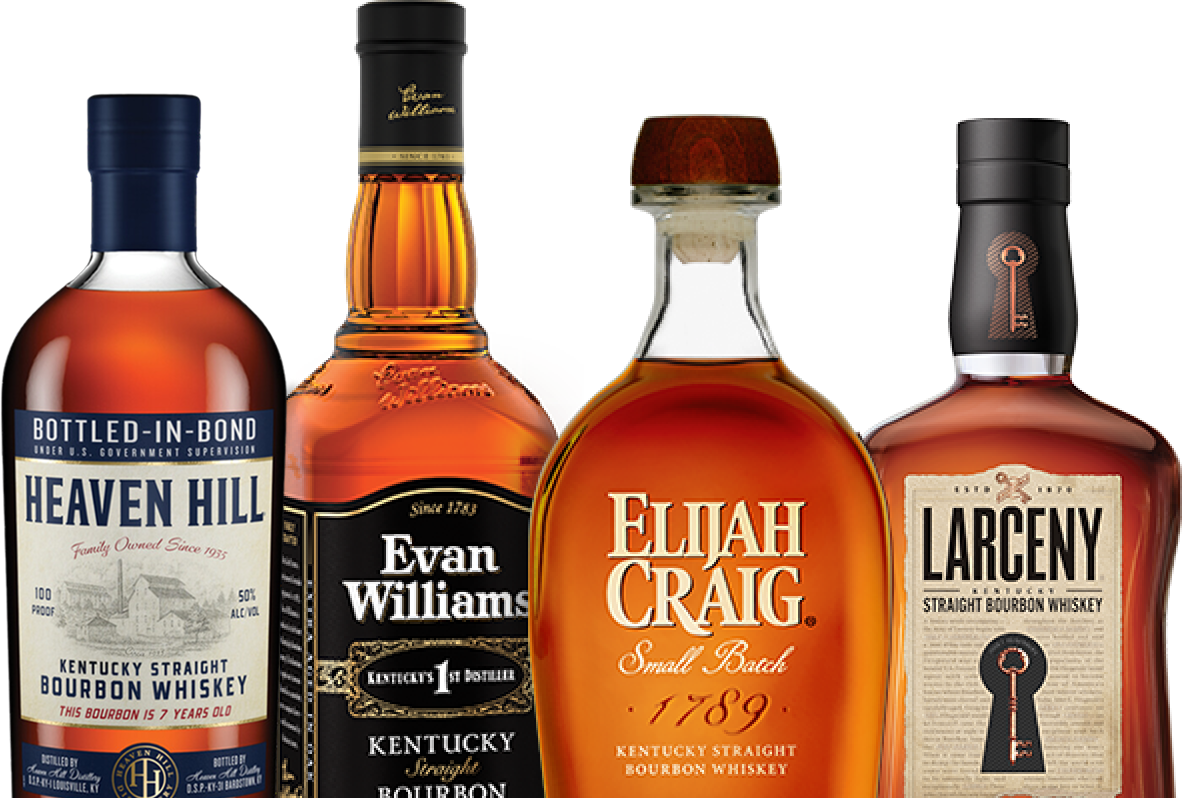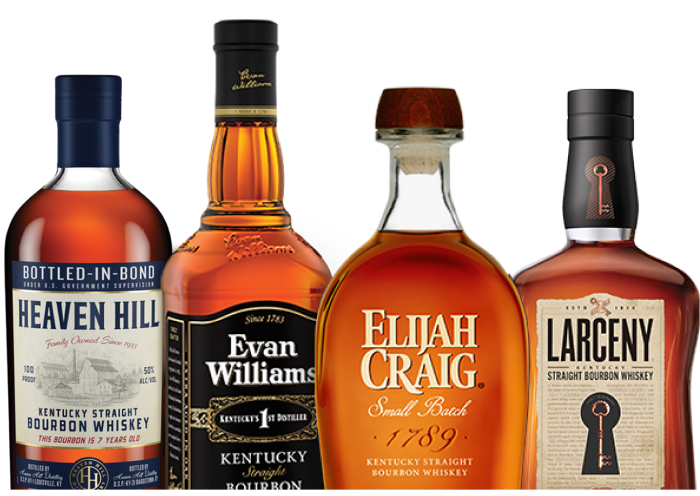It’s an overcast, rainy day, but spirits among the group remain high. Loggers from across the state have gathered at the edge of the forest for a Master Logger Program training with the Tennessee Forestry Association. Over the next five days, they’ll cover topics from water quality and safety, to business management and sustainable forest management.
Greg Helton, field rep and chainsaw trainer with Forestry Mutual Insurance Company, is leading the day’s safety session. When you’re cutting by hand with chainsaws, he explains, you need to make sure you’re being safe and doing it in a controlled manner. He walks the group through a 5-step felling plan and the importance of directional felling.
“By placing your trees with directional felling,” he says, “you keep your standing trees undamaged. This means they’ll keep growing and can be harvested in the future.”
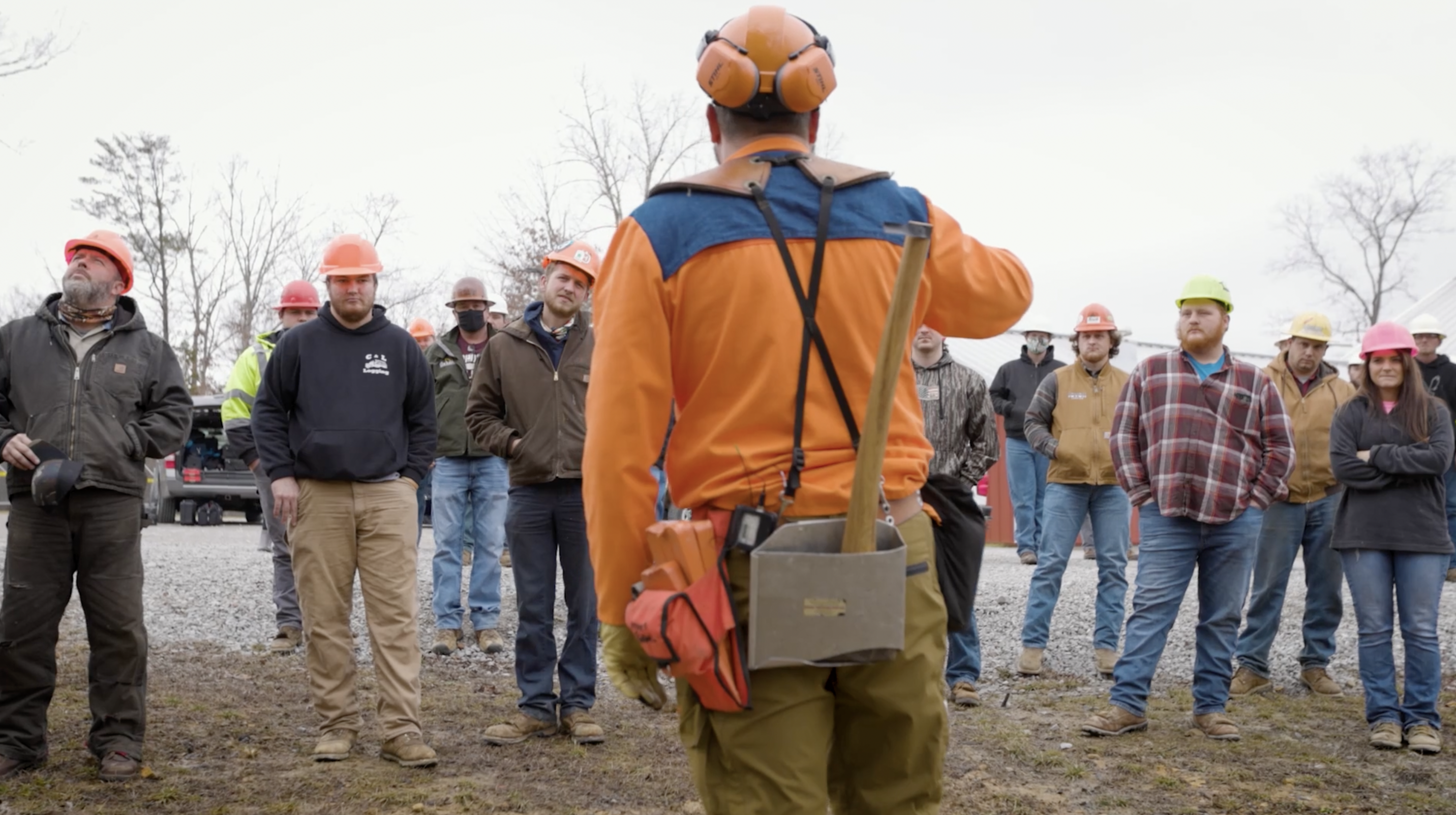
Working with the future in mind will come up again and again during training. That’s because logging has always been a business that requires looking ahead. Loggers’ livelihoods depend on trees that were seeded decades ago, and the decisions they make today will impact generations to come.
It’s the same for those in the Bourbon business. As any fan knows, by law Bourbon must be aged in new, charred oak barrels. What fans may not realize is that the barrels we use today started as acorns when we were distilling our first batches. And over those past 85 years, we have always strived to be a good steward of the natural resources used to create our products.
That’s why in January 2021, Heaven Hill announced a four-part sustainability strategy to address pressing environmental challenges within the industry and local communities. The areas of focus include water, conservation, emissions and waste. Specifically, we are working to conserve the ecosystems that support our business—and that includes supporting a sustainable supply of white oak.
“As stewards of American Whiskey, it is Heaven Hill’s job to make sure we are always planning,” says Susan Wahl, vice president of American Whiskeys at Heaven Hill Distillery. “To make sure there is good quality American Whiskey available for consumers for years to come.”
START AT THE SOURCE
Earlier in the year, Heaven Hill sat down with one of our cooperages, Independent Stave Company (ISC) of Lebanon, Ky., to discuss developing our white oak sustainability program.
“Heaven Hill wanted a program that was really going to have an impact on the industry, something that was real,” says Jason Stout, vice president of business development and marketing for ISC. “I said, ‘Why don’t we go to the frontline?’ You know, right there where it’s happening—and that’s with the loggers. They really manage the relationship with the landowners.”
According to Stout, 90 percent of the oak that they use comes from private landowners. That’s thousands of landowners in the Eastern hardwood region. Loggers not only have the closest relationships with these landowners, they also help them make key decisions, such as what trees to harvest and how to harvest them.
While there is no required certification process to become a logger, there are state associations offering voluntary training programs, such as the Master Logger Program. For Heaven Hill and ISC, this was a perfect opportunity for the sustainability program. By providing funding, we could offer loggers the opportunity to attend training with all costs covered.
We believe that education is a core tenet for everything we do at Heaven Hill. And we knew that by investing in loggers’ education, we could have a positive impact on not only their family-owned businesses, but also on the health of the forest. And to make sure we were supporting the communities that help support us, we decided to sponsor loggers across several states, specifically those that supply the wood for our Bourbon barrels.
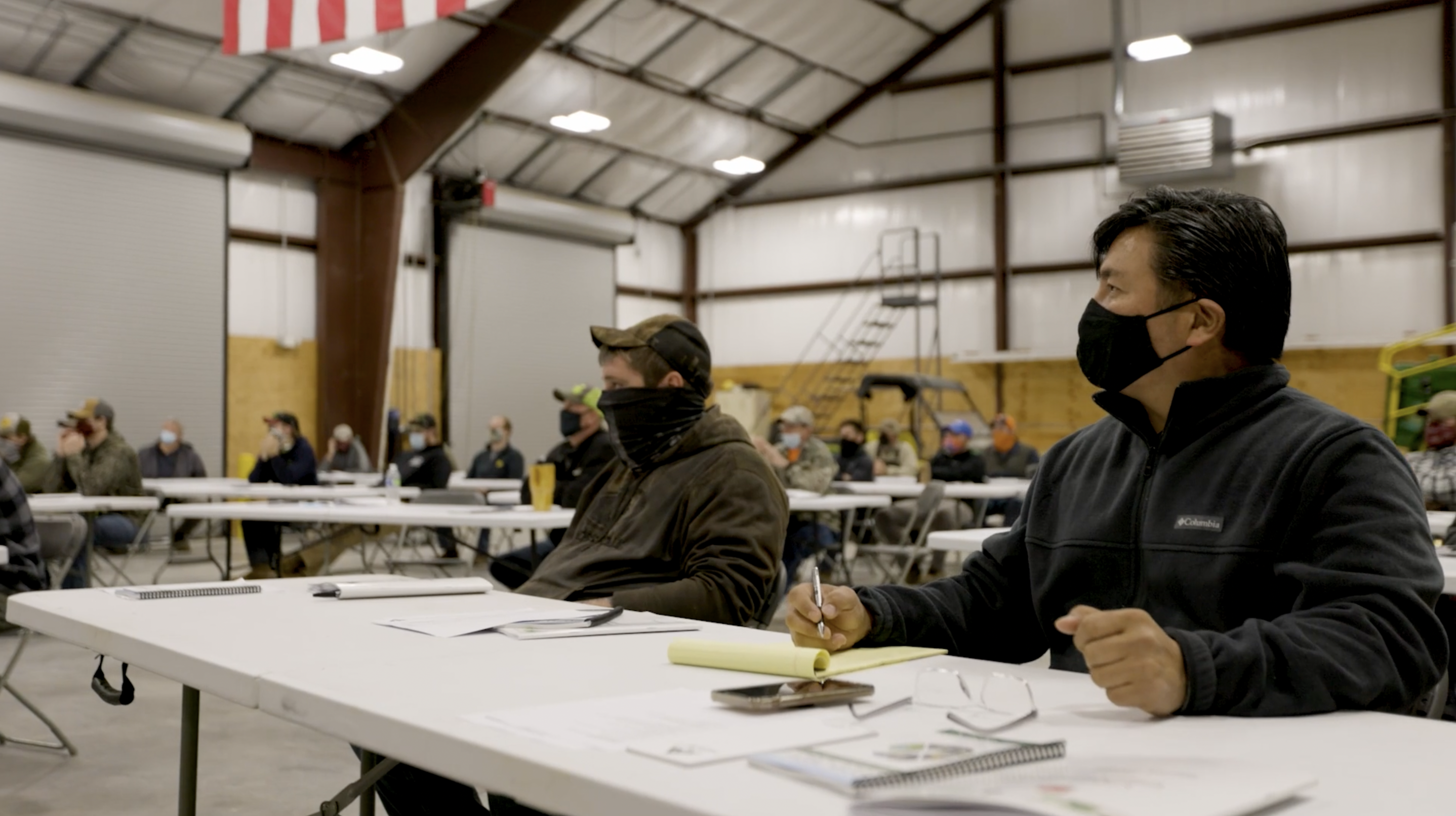
“The program that we have developed with Independent Stave Company, we’re really providing almost like a scholarship opportunity, giving people the opportunity to go to their state certification program to learn about sustainable logging practices,” says Wahl. “We know that if we can educate loggers on these practices, then we’re going to have a healthier forest and healthier white oak—for Bourbon and for many other industries, as well.”
THE MIGHTY WHITE OAK
The journey of an American white oak from an acorn to a towering tree chosen for coopering spans 30 to 80 years. Unlike other tree species that contain resins that influence spirit flavor negatively, American white oak is relatively neutral. Only when dried in open air and/or finished in kilns, then charred or toasted, do those coveted vanilla, toast and spice flavors emerge.
Alex Richman’s family has been growing white oak for whiskey barrels since 1813. Today, as a forester for the Tennessee Forestry Association and the chief operating officer for Cumberland Springs Land Company, her livelihood still depends on these trees. “The stakes are huge for white oak,” she says. “We have to start managing it now in order to have a sustainable source for future generations.”
This long-term management takes lots of little actions and teamwork over time in order to get the final product, Richman says. Since forest management is crucial to helping these trees thrive, cooperages rely on loggers to remove non-merchantable trees that impede the growth of promising oaks. The practice is called “timber stand improvement” and is overseen by certified master loggers.
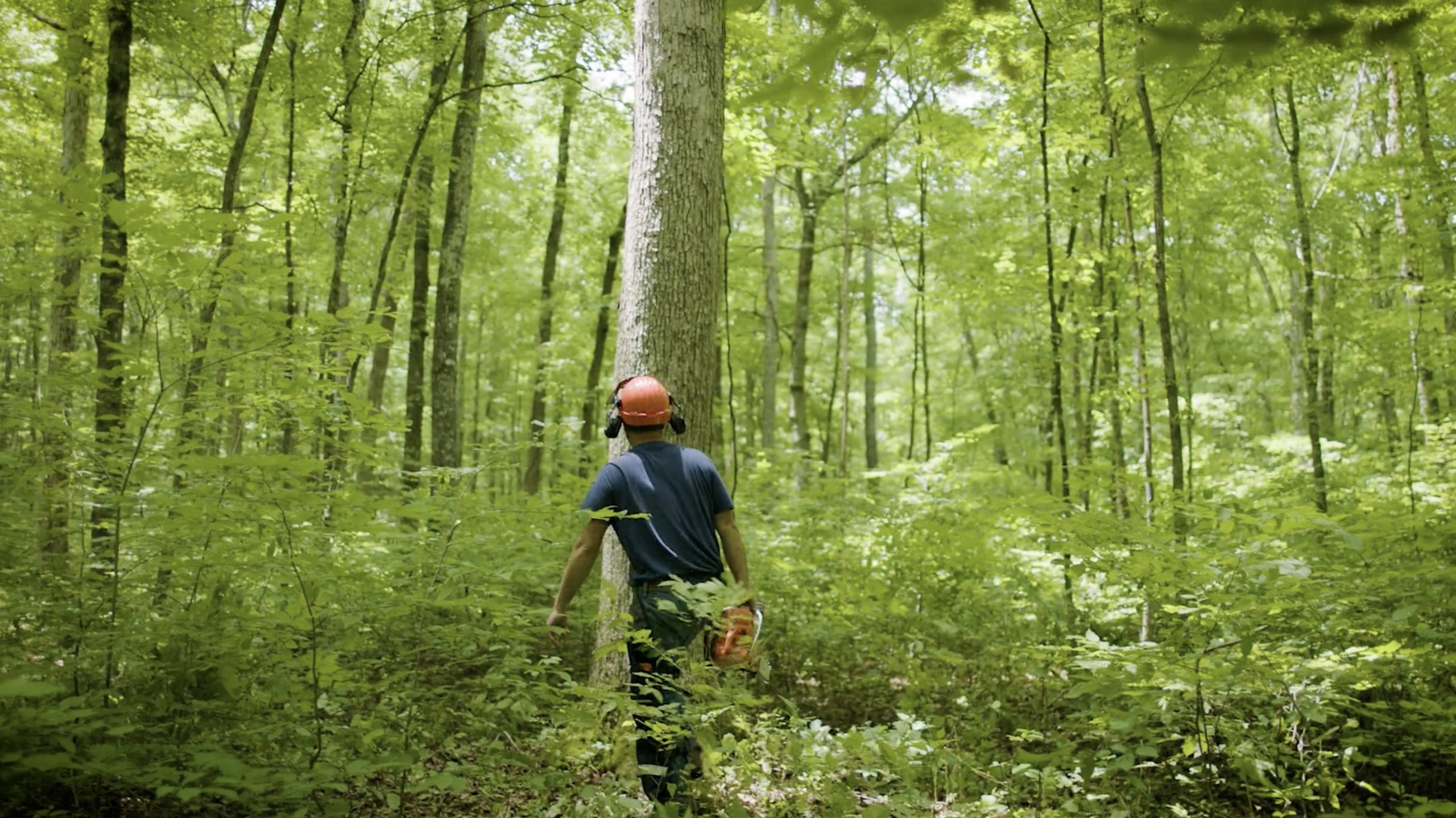
When it comes time to harvest mature trees, cooperages consult regularly with loggers and work with thousands of suppliers to acquire the best and most consistent barrel-grade oak. An ideal tree is straight, of a specific height and girth, and has minimal knots.
“You want to get that tree when it’s at its peak maturity,” says Stout, “and harvesting mature trees is a good thing, it’s the responsible thing to do. It opens up the canopy, allows sunlight to come down and allows the next generation to grow. That creates a healthy forest, when it’s growing and regenerating.”
FAMILY-OWNED AND FUTURE FOCUSED
Back at the training session, Richman explains that programs like the Master Logger Program also help ensure that loggers are being educated to equal standards. This is important as it’s common for loggers to grow up in the industry and learn from their parents or grandparents. But the desire to continue their education so they can improve and grow their family-businesses is there—a sentiment shared by many in the Bourbon business, including Heaven Hill Distillery and ISC.
Take Collin Lovell of Lovell Logging. For him, becoming a master logger is about ensuring not only sustainability in the forest, but also sustainability for his family’s business. “I’ve been working under my dad, learning from him and my grandfather, and some of our more seasoned loggers,” he says. “Hopefully after certification, it takes me a step further and into a leadership role amongst a crew. I’m able to become a smarter, more efficient and safer logger for our business.”
Lovell recognizes that as times have changed, so have forestry and safety best practices. “My grandfather had one tractor and he would hand cut the tree and pull it out with a chain. He would sometimes bring a sawmill into the woods and do the sawmilling right there on the job, just him.”
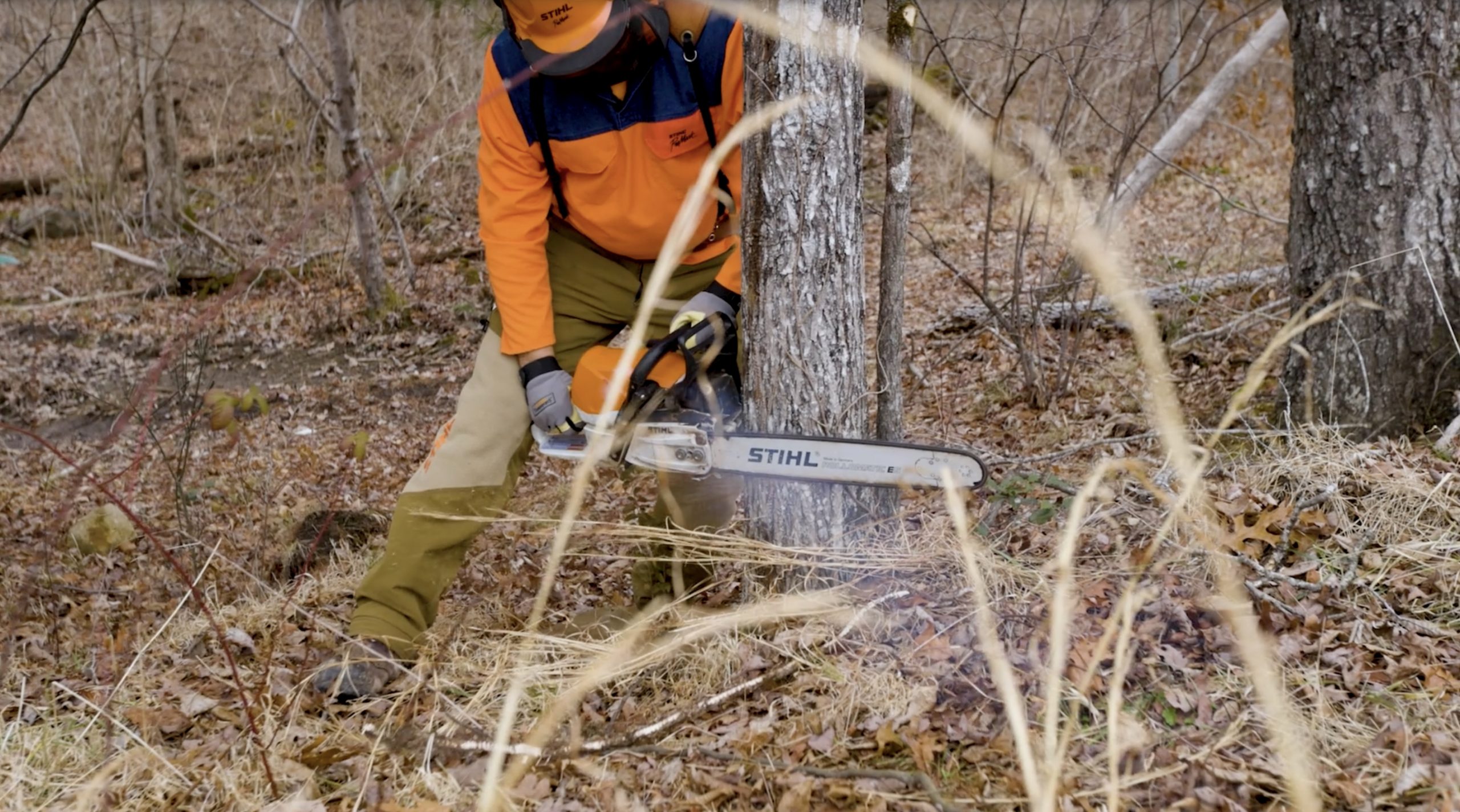
And that brings us back to where we started, with Greg Helton explaining safety and directional felling. “The older methods that were used, they would pretty much just cut and stay with the tree as it fell,” says Helton. “We’re teaching a 5-step felling plan using a controlled-release to fell the timber. You’re controlling the time that the timber cutters are at the stump. You’re also placing the trees where you want them, which keeps your standing trees growing. That’s the practice that keeps a sustainable forest.”
It’s one of those little actions that adds up to something greater.
Learn more
